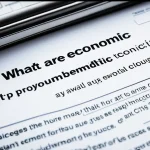Overview of the UK’s Recent Policy Shift
The recent UK policy change centers on a significant alteration in foreign engagement strategies. The UK government officially cited the need to modernise its international stance to better address evolving geopolitical challenges as the primary rationale. This update reflects a strategic pivot aimed at reinforcing the UK’s global influence while adapting to new security and economic environments.
Announced in late 2023, the policy shift followed months of intense political debate amid an evolving international landscape. Key government documents emphasized the desire to enhance flexibility in diplomatic actions and improve responsiveness to global crises. Statements from senior officials highlighted a commitment to maintaining strong alliances while exploring broader international partnerships.
This might interest you : How is the UK Adapting to Climate Change Challenges?
The timeline charted clear milestones: initial consultation phases in mid-2023, detailed policy drafts by autumn, culminating in the formal announcement. This context underscores the UK government’s intention to align its foreign policy more closely with emerging world order dynamics. Such an official repositioning signals both subtle recalibration and potential far-reaching changes in diplomatic tactics, marking a clear break from prior strategies. Overall, the updated UK policy change reveals a proactive government approach responding to geopolitical shifts with calibrated agility.
Immediate International Reactions
The recent UK policy change provoked a dynamic wave of international responses within days of its announcement. Notably, key countries and international organisations voiced opinions reflecting mixed sentiments. The United States expressed cautious optimism, affirming ongoing cooperation but urging transparency in operational details. Conversely, some European allies issued measured critiques, concerned the UK government’s new approach might complicate diplomatic relations that have been stable for years.
Topic to read : What Are the Current Debates Surrounding UK Education Policies?
Public statements from foreign officials ranged from supportive endorsements highlighting the UK’s need to adapt, to pointed criticisms warning about potential isolation stemming from abrupt shifts. For instance, certain diplomats emphasized that swift changes could disrupt the existing balance of power, affecting negotiation channels and trust. Early shifts in diplomatic tone included a noticeable recalibration of engagement priorities; some partners sought immediate clarifications to gauge future directions, reflecting uncertainty on how this international policy update would unfold.
Overall, these diplomatic reactions reveal that while the UK government’s move is largely seen as a proactive repositioning, it also introduces volatility. This initial response landscape underscores the significance global actors place on the UK’s foreign policy adjustments and their potential ripple effects on global stability and alliances.
Diplomatic Impact and Relations
The UK international relations landscape has notably shifted following the recent UK policy change, introducing both opportunities and strains. Among major allies, reactions reveal a nuanced recalibration: some partners express cautious openness, while others signal reservations over potential disruptions to established alliances. This has tangible effects on ongoing foreign policy negotiations, where the UK government’s updated stance challenges previous assumptions about collaboration frameworks.
Experts underscore that the policy’s diplomatic consequences may extend well beyond immediate alliances, influencing the UK’s strategic positioning globally. Analysts highlight that the UK’s recalibration aims to assert greater sovereignty yet risks alienating key supporters if communication is not maintained effectively. This dynamic impacts treaty discussions and international forums where trust and consistency remain paramount.
Further, shifts in bilateral and multilateral engagements are becoming apparent, with some adversaries interpreting the UK government’s stance as an opening for strategic contestation, while others cautiously seek dialogue. Overall, the diplomatic consequences of the policy update underscore the complex balance the UK must sustain to navigate evolving global challenges while advancing its interests. Continuous monitoring of evolving relationships will be crucial as the situation develops.
Economic and Trade Consequences
The recent UK policy change has prompted a reevaluation of the nation’s role in international trade, directly affecting ongoing negotiations and economic frameworks. This international policy update signals a shift toward increased trade independence, impacting tariffs and bilateral agreements. For example, the UK government has indicated a preference for tailored trade deals, potentially deviating from broader multilateral pacts. This recalibration may alter investor confidence, as markets respond to perceived uncertainties surrounding trade continuity and regulatory alignments.
Business leaders voice cautious optimism, recognising opportunities for UK global trade diversification yet expressing concerns about transition periods and administrative complexities. Economists highlight possible short-term disruptions, including volatility in import-export volumes and changes in foreign direct investment flows. However, long-term economic impact depends heavily on policy implementation and international reception.
Market analysts stress that the policy’s economic impact intertwines with geopolitical dynamics, affecting trade routes and partnership stability. The UK government has released statements underscoring commitment to minimize trade disruptions while fostering new economic partnerships. These developments reflect a strategic balancing act between safeguarding domestic interests and maintaining an open, robust trade environment.







